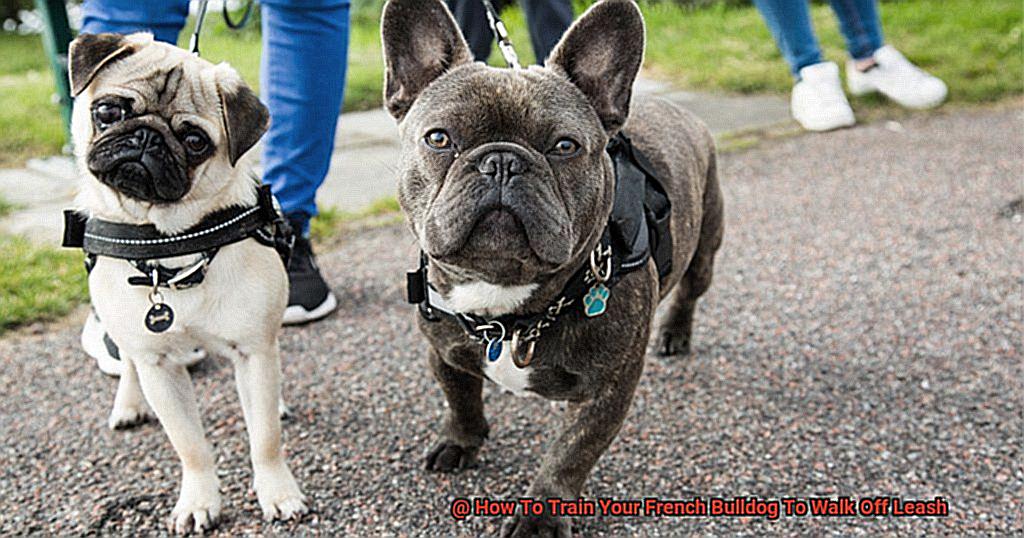Why French Bulldogs Are Perfect Apartment Dogs?
Are you looking for the perfect apartment dog?
Look no further than French Bulldogs. These adorable and affectionate pups are great for small living spaces, making them a favorite among city dwellers.
French Bulldogs have many attributes that make them ideal apartment dogs. They are low maintenance and require little grooming, fitness, or space.
Plus, they are not known to bark excessively, so they won’t bother your neighbors or attract unwanted attention from passersby. The French Bulldog temperament is also perfect for apartments.
They are loyal and loving companions who thrive on human interaction and affection. They’re incredibly resourceful, eager to please their owners, and can be taught with positive reinforcement strategies such as clicker training or reward-based schemes.
What’s more, French Bulldogs don’t need lots of space in a flat environment. Although they do need some regular exercise, they don’t need long walks or trips to the park – just a few minutes of playtime in the hallway is enough to keep them happy.
These little dogs make great apartment pets due to their even temperaments and easy care needs.
Size: Why French Bulldogs are the Perfect Size for Apartments
Contents
- 1 Size: Why French Bulldogs are the Perfect Size for Apartments
- 2 Energy Level: Why French Bulldogs Don’t Require a Lot of Exercise or Outdoor Space
- 3 Temperament: Why French Bulldogs Make Great Companions for Those Who Suffer from Anxiety or Depression
- 4 Good with Children and Other Animals: How French Bulldogs Get Along with Other Family Members
- 5 Training: How to Train Your French Bulldog to Behave Properly in an Apartment Setting
- 6 Grooming Tips: How to Keep Your French Bulldog Looking and Feeling Its Best
- 7 Health Care: What Steps to Take When Caring for a Sick or Injured French Bulldog
- 8 Diet and Nutrition: What Foods Are Best For Your French Bulldog
- 9 Conclusion
These tiny, low-energy, and friendly dogs are ideal for people who live in apartments. French Bulldogs are the perfect size for small living spaces.
They typically weigh between 16 to 28 pounds and stand 11 to 12 inches tall, making them easy to lift and maneuver around furniture. Plus, they don’t need a lot of exercise or outdoor space like larger breeds, which makes them ideal for busy people who don’t have a lot of time to spare.
But it’s not just their size that makes them great apartment pets – their personalities make them an even better match. These dogs love being around people and are excellent companions for those who suffer from anxiety or depression.
They also get along with children and other animals, so they’re an excellent pet for families living in apartments too. French Bulldogs are also low-maintenance when it comes to care.
To keep their short coats looking their best, only a quick weekly brushing is needed – no extensive grooming required.
Energy Level: Why French Bulldogs Don’t Require a Lot of Exercise or Outdoor Space
These low-energy pups are the most popular breed for those who need an emotional support system, but don’t have a lot of space or time to spare. With their adorably small size, easy-care coats, and cuddly personalities, it’s no wonder why these little guys are so beloved.
So why don’t French Bulldogs require a lot of exercise? Well, one reason is their size – they usually weigh between 16 and 28 pounds, meaning they don’t need as much room to run around as larger breeds.
Plus, their brachycephalic (short-nosed) face can make it difficult for them to breathe during intense exercise. Therefore, owners should aim for at least one 30-minute walk per day and provide toys or puzzles for mental stimulation.
Temperament: Why French Bulldogs Make Great Companions for Those Who Suffer from Anxiety or Depression
French Bulldogs make wonderful companions for those suffering from anxiety or depression.
Not only are they adorable, but their friendly and affectionate nature provides a sense of comfort and security that can be hard to find. Their low energy levels, loyalty, and adaptability make them the perfect pet for city living or apartment living.
Frenchies thrive on human interaction and enjoy cuddles and snuggles on the sofa, making them an ideal choice for those with busy lives or limited access to a yard. They have a well-balanced temperament that allows them to adapt to any lifestyle, enabling their owners to leave them alone for reasonable periods without causing distress.
In addition, French Bulldogs are known for their patience and resilience around children, making them suitable companions even in households with kids. Plus, they require minimal grooming, making them low-maintenance pets that first-time dog owners can easily handle.
Good with Children and Other Animals: How French Bulldogs Get Along with Other Family Members
French Bulldogs are the perfect addition to any family.
Not only are they incredibly loyal and affectionate, but their gentle nature makes them an ideal companion for both children and other animals. These little guys are renowned for being tolerant of children’s rough play and commotion, making them a great fit for families with kids.
They also have a docile disposition, allowing them to socialize with other animals – such as cats and small pets like rabbits and guinea pigs – with ease. However, it is important to introduce French Bulldogs to other animals cautiously and under supervision when meeting for the first time.
They don’t take up too much space in your house, but they are content with short walks or playing indoors – making them suitable for city dwellers who don’t have access to a yard or park near them.
Training: How to Train Your French Bulldog to Behave Properly in an Apartment Setting
Having a French Bulldog in an apartment can be a rewarding experience, as they make wonderful companions for small living spaces.
But in order to ensure that your furry friend behaves properly and remains safe, training them is essential. Here are some tips on how to train your French Bulldog to behave properly in an apartment setting.
First and foremost, it is important to establish yourself as the pack leader. Positive reinforcement techniques such as treats, toys and praise will help with this.

Secondly, potty training is critical for a successful transition into apartment life; create a regular routine and take them outside regularly to avoid accidents indoors. If the weather is too hot or cold outside, you can also teach them to use pee pads.
Regular exercise is also necessary for French Bulldogs, even if you don’t have access to a yard or park nearby. Engage them in indoor playtime or take them out for short walks around the block – just remember not to overexercise them during hot weather as they are prone to respiratory problems.
Socializing your dog in an apartment setting is also key in preventing boredom-related issues such as aggression or destructive behavior; take them out on dog walks or enroll them in obedience classes so they can socialize with other animals safely. Lastly, teaching basic commands such as sit, stay, and leash training will help ensure their safety while still building a strong relationship between the two of you.
Grooming Tips: How to Keep Your French Bulldog Looking and Feeling Its Best
French Bulldogs are the perfect breed for apartment living – they’re small, low-energy, and friendly. But even though they’re a low-maintenance breed, their short, smooth coat still needs some attention to keep them looking and feeling their best. Here are seven essential grooming tips to help your French Bulldog look and feel great.
Regular Brushing
Brushing your Frenchie at least once a week with a soft-bristled brush or rubber curry brush will remove loose hair, dirt, and debris from their coat. It also promotes healthy blood circulation and helps distribute natural oils for a healthy skin and coat. Be gentle around the face and ears when brushing, using a damp cloth to wipe away tears or dirt.
Bathing Occasionally
Bathing your French Bulldog every three months can help maintain their hygiene. However, it’s important to use a mild dog shampoo that won’t strip their skin of natural oils and rinse thoroughly to avoid any residue on the skin. Over-bathing can lead to dryness or irritation so use sparingly.
Clean Ears
Frenchies are prone to ear infections due to their floppy ears and narrow ear canals so it’s important to keep them clean and dry. Wipe your Frenchie’s ears with a cotton ball or soft cloth moistened with an ear cleaner recommended by your vet every few weeks but be careful not to use cotton swabs or any sharp tools that could harm the delicate ear canals.
Trim Nails
Long nails can cause discomfort when walking or even pain if they become ingrown so it’s important to trim them regularly with clippers or a grinder – just be sure not to cut the quick. If you don’t feel comfortable trimming your Frenchie’s nails yourself, ask your vet or professional groomer for assistance.
Clean Wrinkles
To prevent bacterial or fungal growth in the folds of skin on your Frenchie’s face and neck wrinkles, gently clean them using a wet cloth or baby wipe making sure they are completely dry afterwards. You can also apply medicated ointment recommended by your veterinarian if you notice any redness or inflammation in these areas.
Professional Bath and Nail Trim
Schedule professional baths every few months with dog-specific shampoo and conditioner that is gentle on sensitive skin and coats; use treats during this time as positive reinforcement.
Also make sure you get regular nail trims; long nails can cause pain if they become ingrown so keep them short with regular trimmings.
v9hfD5zKgLo” >
Health Care: What Steps to Take When Caring for a Sick or Injured French Bulldog
Caring for a sick or injured French Bulldog can be a challenging task, but with the right knowledge and attitude, you can ensure that your furry friend receives the best possible care.
From finding a qualified veterinarian to providing comfort and care at home, there are several steps that every French Bulldog owner should take. When it comes to veterinary care, it is essential to find a vet who is familiar with brachycephalic breeds such as French Bulldogs.
These breeds have short muzzles that can cause respiratory issues, so having an experienced doctor is key in providing the appropriate treatment. Additionally, preventive healthcare measures such as regular check-ups and vaccinations are also essential in keeping your dog healthy and happy.
At home, owners should provide their sick or injured pup with plenty of rest in a quiet and secure environment. Monitor their temperature, provide them with plenty of water and healthy food choices, administer medications as prescribed by the vet, and follow any instructions or recommendations made by the vet regarding exercise restrictions or activity levels.
Diet and Nutrition: What Foods Are Best For Your French Bulldog
When it comes to taking care of your French Bulldog, diet and nutrition are essential for their overall health and wellbeing.
Due to their small size and sensitive stomachs, French Bulldogs have specific dietary requirements, so providing them with a balanced diet is key. When selecting food for your Frenchie, look for a premium brand that uses natural and wholesome ingredients.
Avoid foods that contain fillers, by-products, or additives as they can cause digestive issues and allergies. Protein should be the primary ingredient in their food, so opt for meat that contains high-quality animal-based protein such as chicken, fish or beef.
To make sure they get all the essential vitamins and minerals they need, you should also include some fruits and vegetables in their diet. French Bulldogs are prone to obesity, so it’s important to not overfeed them.
To reduce any digestive issues, it’s also best to feed them smaller meals throughout the day rather than one large meal.
Also Read: Are French Bulldogs Good Apartment Dogs? – Allfrbulldogs.com
Conclusion
French Bulldogs make the perfect apartment dogs.
Their low-energy, loving personalities mean they thrive on human interaction and love. Plus, they don’t require much space or exercise – making them a great choice for busy people who don’t have a lot of time to spare.
They also get along with children and other animals, making them ideal for families living in apartments. To ensure your Frenchie is happy and healthy in their new home, potty training is essential; set a regular schedule and take them outside often to prevent accidents indoors.
Exercise is also necessary – whether it’s short walks around the block or playing indoors – and socializing your pup with other animals is key to avoiding boredom-related diseases such as aggression or destructive conduct.
Don’t forget about regular grooming either; brush their hair at least once a week with a soft-bristled brush, clean their ears every few weeks, file their nails regularly, and feed them premium animal-based protein as well as some fruits and vegetables for all the essential vitamins and minerals they need.
In conclusion, French Bulldogs are the perfect apartment dogs due to their even temperament, simple care requirements, small size, and low energy levels.




